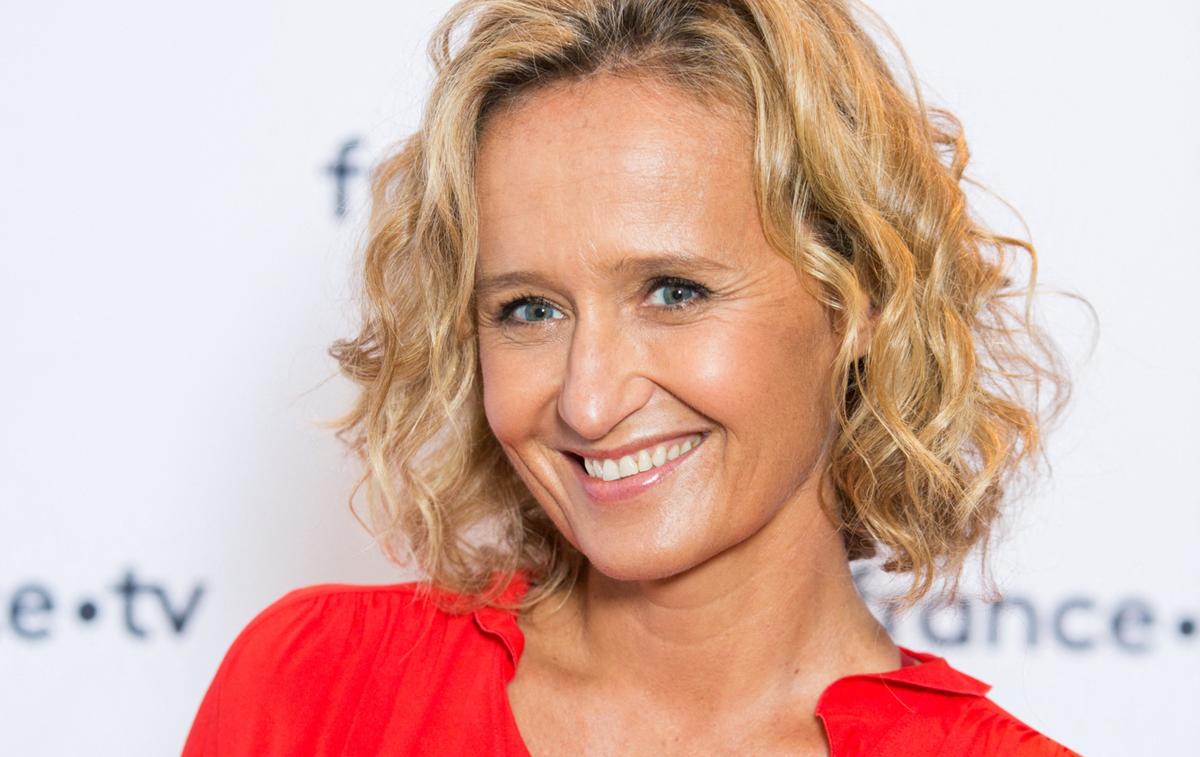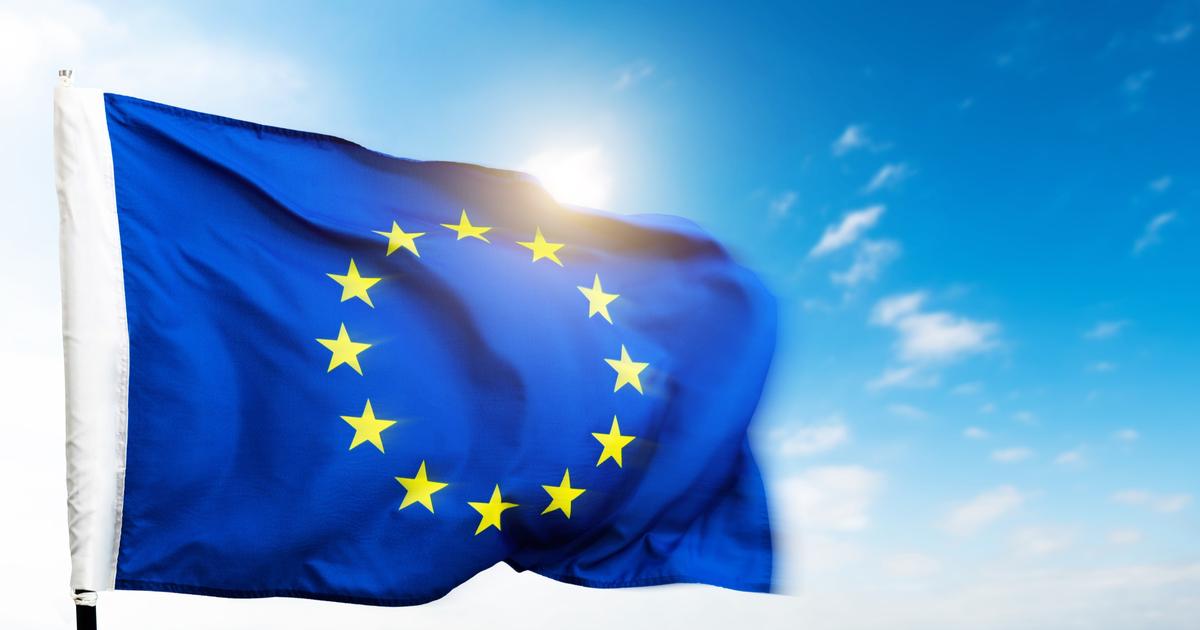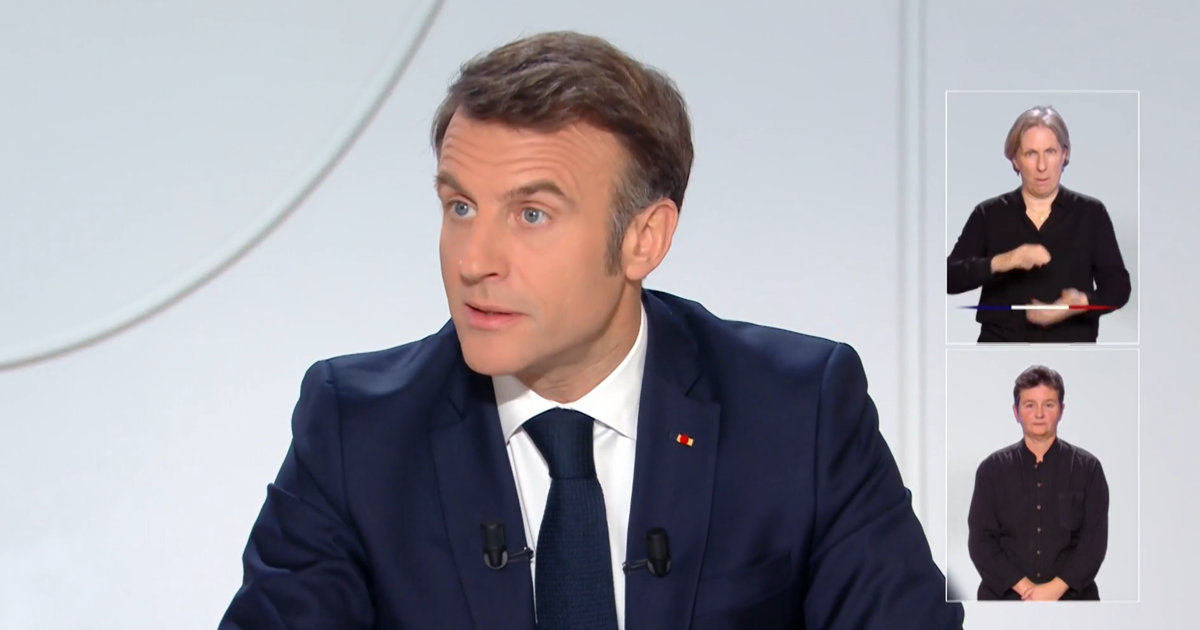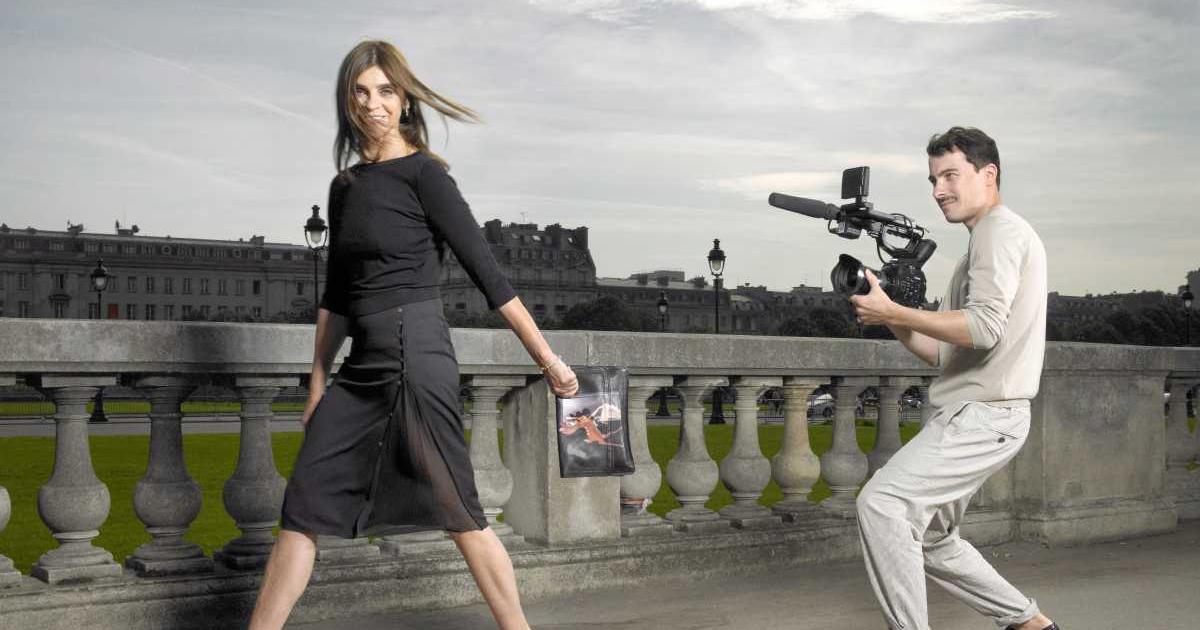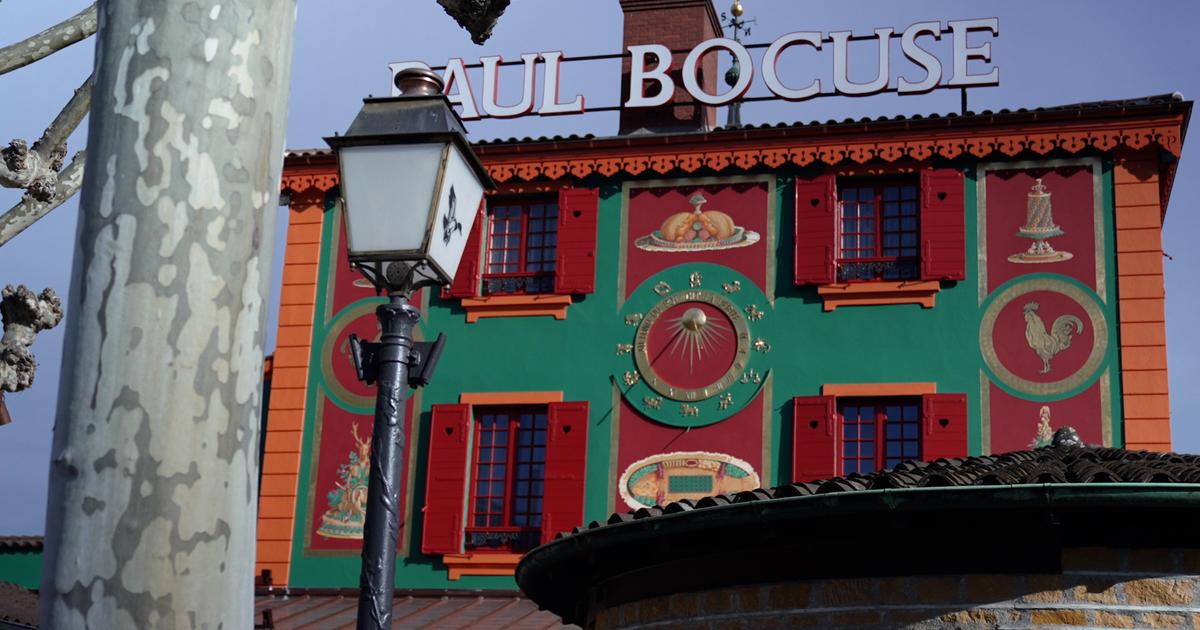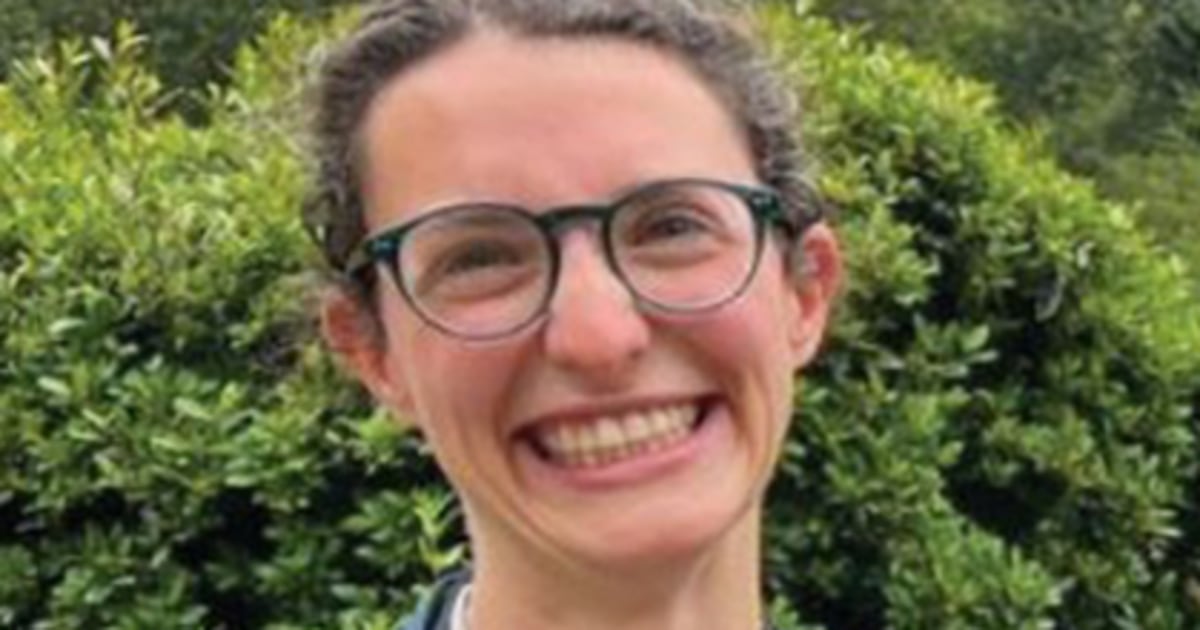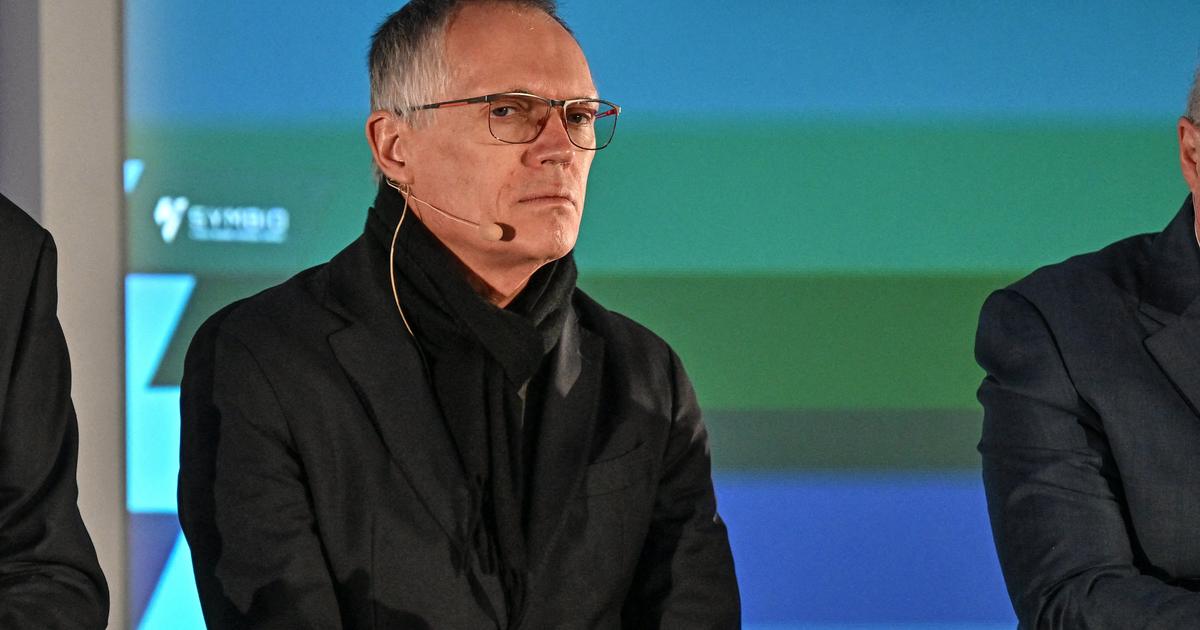Miss Figaro.
– On the eve of this presidential campaign, which in reality has already started well, what word would best define your state of mind?
Caroline Roux. –
I would say: concentrated. This campaign is unique, because it carries with it issues of national unity, the mood of a country hit by the crisis of "yellow vests", the pandemic... The echo given to any event by social networks also means that, more than ever in my profession, the slightest misstep can be fatal. It can be a look, a cutaway, a word used instead of another, a small grin that will be interpreted as a form of arrogance… There is no longer any tolerance for journalists. I don't know if it's good or not, in any case it's like that.
How do you protect yourself from it?
Precisely by being extremely concentrated.
When I go on the air, I know that everything I say could be used against me.
I am also obsessed with being well understood.
Not to hit.
Because I really feel moral fatigue in people.
I don't want to be next to what they live or give the feeling that I deliver ready-to-think.
Read also »
Caroline Kennedy, the fate of the last survivor of the Kennedy siblings
In video, the major dates in the history of women in politics
It's hard to be a Parisian journalist leading a fairly privileged life without appearing above ground. However, you remain very accessible and popular…
This depends a lot, I think, on the choice of words. Obviously, you mustn't fall into political correctness, too polite – if you pay too much attention to what you say, you don't say anything anymore. But here, I lengthen my sentences, I explain, to be sure to be well understood. The worst for me would be to imply what I did not want to say.
Is this your fifth campaign as a political journalist?
Yes. The first time was in 2002, I was following Jacques Chirac at the time. I feel like a dinosaur saying that, but the experience gives me a bit of a perspective on the polls, on the pressure that mounts in November and December.
If we go back to the origin, why did you become a political journalist? Was there in your education, in the values that were transmitted to you, something that called you to it?
I would like to tell you that I dreamed of it since I was little, but that's not the case at all. On the other hand, I was curious, I really liked history and politics, yes. It was a time when the country was coming together. I am thinking of the France/Germany football match of 1982, but also of the big election nights. I was fascinated by those moments, that collective breath. After IEP Grenoble, I naturally turned to political lessons, and journalism imposed itself fairly quickly.
Were there any encounters, figures that led you there?
I grew up in the provinces, in Grenoble, my parents were hairdressers, I studied journalism in Marseille. I didn't know any great journalists. There have never been ministers at our table or columnists. On the other hand, as I often say, the figure of Anne Sinclair was very present. I looked at her with the admiration of a schoolgirl. She still inspires me today. This elegance that she has…
And later?
Having become a journalist, I met great interviewers, editorial writers who helped me find myself, like Catherine Nay, at Europe 1. I went to sit in her office, she put her huge legs on the table and threw : “So my darling…” And it was on! She told me about politics, that of the big cats, and I looked at her with absolutely admiring eyes, saying to myself: 1. She knows them by heart, she has tamed them all. 2. She can read double talk. Trick them to get the information she seeks. So she guided me a lot and I love her deeply.
I also worked a lot with Arlette Chabot, one of the funniest women I've ever met.
She was very generous with me.
She held out her hand to me, helped to build me up as a woman in that environment, to not be fooled.
She said to me: “When a politician calls you to give you information, you have to ask yourself two questions.
Who is really talking?
And: Who does he want to harm?
I loved this way of conceiving politics, like a game of fifteen-cushion billiards.
It still serves me today.
All the time.
The worst for me would be to imply what I didn't want to say
Catherine Nay published last year the second volume of her memories (1). What was the difference between being a political journalist then and now?
I think there was an assumed proximity between these two worlds, politics and journalism, which nowadays is no longer possible. Today, being at the table of the powerful is suspect, it is proof of connivance, it feeds the suspicion of a conflict of interest. Of course, there is always the ritual of journalists' lunches. It is always done, but it assumes less. Me, anyway, I don't have time. This is what has profoundly changed compared to that time: the acceleration of media and political time, mainly due to social networks. Before, we were in institutional time, the time of the castle, that of the Élysée. A slow time dictated by the executive. Today, there are three controversies a day, and this makes the exercise of the presidential political function very difficult.Just like cold analysis for journalists.
How do you keep, precisely, this time of analysis?
I spend a lot of time sorting, trying to distinguish what is artificial controversy from what really interests people, what has a direct hold on their lives, on the political debate. The preparation time for an interview has multiplied by five since I started this job.
How do you see the role of political journalist at a time when democracy is quite threatened by social networks, the violence of debates?
I entered into resistance. In
C in the air
, everything is done to escape this diagnosis that you pose. Dealing with a single subject over an hour and a half with four people, with the concern that they can talk to each other, listen to each other, understand each other and share their knowledge, sometimes on difficult subjects of international politics, it's the opposite what is done in general to generate audience. When I see our numbers coming in, I'm like, 'everything is fine'. There are still more than 1.5 million people each evening interested in this type of debate. Same with
The 4 Truths
(2), which break audience records in the morning, when I make no or very few controversies. If I receive Olivier Véran, I don't care to have his opinion on Anne Hidalgo. If he wants to make a short sentence, he goes on Twitter. I refuse to place politicians in the role of observer or commentator of public life, I tell them so, and besides, they don't flinch. (Laughs.) We don't need actors. You will notice that until now, Éric Zemmour had not appeared on my shows.
How to restore listening to the other, the possibility, in a debate, to allow oneself to be convinced?
I seek neither confrontation nor opinion.
It matches my character.
My concern in life is to understand – and to understand takes infinite time.
This is the time of complexity, rigor, nuance.
I often arrive at
C dans l'air
with convictions, and I come out with doubts.
And it's great.
It means I'm moving forward.
What did young politicians look like?
What did young politicians look like?
The "Little Nicolas" is barely 28 years old when he puts on the costume of mayor of Neuilly-sur-Seine.
(April 29, 1983)
Photo AFP / Pierre Verdy
What did young politicians look like?
No, these are not David Guetta's first acoustic tests, but the portrait of Nicolas Hulot, during the recording of a program broadcast on France Inter.
(1982, Paris)
Photo: AFP/Pig
What did young politicians look like?
The Secretary of State in charge of Education, Michèle Alliot-Marie, plays her role, even when she dips her toast in her coffee.
(1986, Paris)
Photo: AFP
What did young politicians look like?
- Photo
Harry Potter at Hogwarts?
Nay!
François Baroin, then deputy of the RPR, in the courtyard of the Palais Bourbon.
(March 31, 1993)
Photo AFP / Jean-Loup Gautreau
What did young politicians look like?
What did young politicians look like?
What did young politicians look like?
What did young politicians look like?
What did young politicians look like?
What did young politicians look like?
What did young politicians look like?
What did young politicians look like?
What did young politicians look like?
What did young politicians look like?
What did young politicians look like?
What did young politicians look like?
What did young politicians look like?
What did young politicians look like?
What did young politicians look like?
What did young politicians look like?
See the slideshow
20 pictures
How are you holding up with two live shows a day (one of which is over an hour), Monday to Thursday?
It's physically taxing. I have an extremely organized life: I get up at 5:30 am, I swallow a coffee, I go to France TV. Then, I read the press, I refine my interview written the day before. After
The 4 Truths
, I work again, I have lunch, then I sink. 45 minute nap. I'm set like clockwork, I really need it. Then new awakening, I start a day again. I shower again, I arrive at 2:30 p.m. at the premises of
C dans l'air
. A large file very well prepared awaits me on my desk. I work until the antenna, my questions are not really ready until the moment of pronouncing: “Hello, Mr. Véran”. At 7 p.m., I go home to take care of my children, I watch the 8 p.m. newspapers, and then I work again from 9:30 p.m. to 10:45/11 p.m. to prepare for my interview the next day. It's a work in progress and the two exercises of the day feed each other.
It's a real sports rhythm!
Yes, I am trained! If you take me to dinner on a Thursday night, I might nose dive at 10:30 p.m. leave before dessert.
Where do you get this energy from?
Whenever I can, once or twice a week, I do a little cardio, yoga, tennis. As a good mountain dweller, when winter arrives, I hear the call of the peaks. When I'm off, on Friday and Saturday, I really pick up. I slowly follow the news without diving into it – I go back to it on Sunday mornings. My energy also comes from an upbringing that taught me not to complain. From the awareness of the extreme luck I have to do my job, to live where I live, surrounded by my family. My parents always had this gift of seeing the glass half full, of putting joy, fantasy even in heavy things, which gave me a lot of structure. It is even, I believe, my most beautiful heritage.
For four consecutive Sundays, at 8:55 p.m., the main candidates will each face the fire of questions from the show's experts for an hour.
(1) “You know it well, time passes.
Souvenirs, souvenirs 2”, Éditions Bouquins, 2021.
(2) “The 4 Truths”, on France 2, within “Télématin”.
The editorial staff advises you
Brigitte Macron victim of transphobic remarks, like Michelle Obama in 2017
The cost of blood: Elizabeth Holmes, the hustler who bewitched Silicon Valley
Oriini Kaipara, the New Zealand presenter who appears with a traditional tattoo on her face

